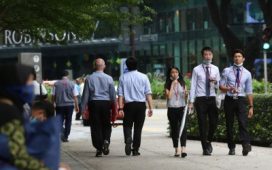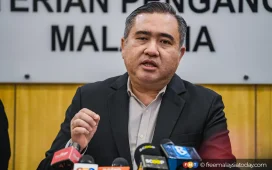KUALA LUMPUR, Jan 28 — The targeted subsidy mechanism, which prevents leakages of resources, will improve the country’s fiscal position, says Economy Minister Rafizi Ramli.
He said the government started out with good intentions by providing subsidies but the spending has swelled amid rising crude oil prices, global supply chain disruptions, the Covid-19 pandemic and the ongoing Russia-Ukraine war.
“What started as a small (amount of) subsidies, if we are not careful, would easily take up between 30 and 40 per cent of our operating budget every year.
“Unless we do something about it, our fiscal position will become weaker and weaker, and that will take away the country’s ability to allocate resources especially on investments or development expenditure that can redirect and refocus this economy towards those sectors that we have targeted,” he said during the Parliament Lecture Series 1.0: Resetting the Malaysian Economy here yesterday.
He said the government has to manage the public’s expectation about prices while not getting addicted too much to keeping prices artificially low.
Besides fiscal consolidation, Rafizi said, another challenge for the country is to broaden its revenue base.
“Broadening the base is no longer an option. It is something that we have to put in place very quickly, especially with the next two to three years expected to be very challenging globally,” he said.
The third challenge, Rafizi said, is restructuring the economy, which means moving from a low wage-based, manufacturing-driven economy to one that is service-based with high tech and value content.
He said that in attracting investors to relocate to or expand in Malaysia, it is no longer just about incentives or tax policies.
“It is more about our ability to provide the right skilled workforce, because we are no longer a low-value, low-wage manufacturing base. We have to move one or two tiers higher than our peers.
“We have to restructure the economy in terms of digitisation. We can unlock one or two per cent Gross Domestic Product growth if we close our digitisation gap, not just in the economy but especially in government services, which hopefully will lead to higher efficiency and more savings,” he added. — Bernama













